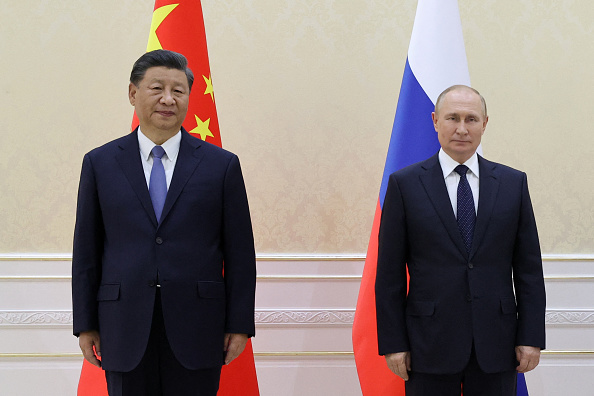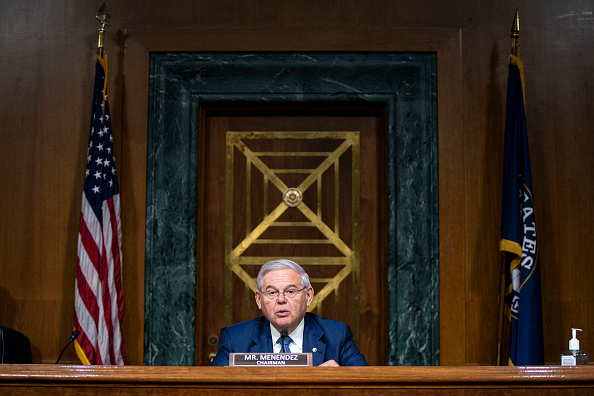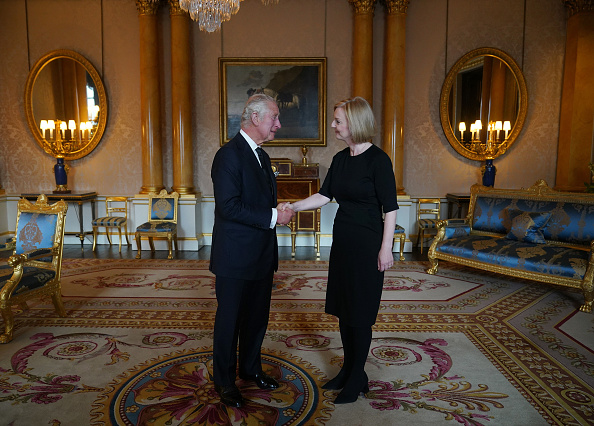
 Injecting Stability
Injecting StabilityFor the first time since January 2020, Chinese President Xi Jinping left China for a trip to Central Asia. Marking his first time abroad since the start of the COVID-19 pandemic, the trip was intended to bolster Xi's standing as a geopolitical statesman.
Xi's first stop was Kazakhstan, a country that is strongly connected to China through China's Belt and Road Initiative, where he was greeted by much pomp and fanfare. He next headed to Uzbekistan for a regional summit of the Shanghai Cooperation Organization (SCO), where he also met with Russian President Vladimir Putin, their first in-person meeting since the start of Russia's invasion of Ukraine.
The trip was in advance of the 20th National Congress of the Communist Party during which Xi is expected to secure an unprecedented third term in office, and offered him a chance to increase China's growing geopolitical clout in the region. At the SCO summit, Xi spoke of China as a reliable regional and global power, and a counterweight to U.S. influence.
During the Xi-Putin meeting, the two leaders vowed to "inject stability into a turbulent world," however Putin offered the first hint of discord in an otherwise close geopolitical relationship when referring to China's concerns over volatile oil prices and economic uncertainty due to the conflict in Ukraine.
"We highly value the balanced position of our Chinese friends regarding the Ukrainian crisis, we understand your questions and concerns on this matter, and during today's meeting we will of course clarify all of these in detail," Putin said in his opening remarks.
Xi also said he appreciated "Russia's adherence to the one-China principle and stressed that Taiwan is a part of China."
 Shaking the Foundation
Shaking the FoundationThe Senate Foreign Relations committee has advanced bipartisan legislation aimed at strengthening U.S. policy toward Taiwan, by bolstering Taiwan's ability to defend itself militarily against a potential Chinese invasion of the island while deepening symbolic U.S.-Taiwan ties.
The panel approved the Taiwan Policy Act of 2022 by a vote of 17-5, amid rising U.S. tensions with China over Taiwan's independence and despite rumored concerns about the legislation from the White House.
Following a robust and heated debate, Senate Foreign Relations Committee Chairman Bob Menendez (D-N.J.) told reporters that the bill "makes it very clear of our support for Taiwan in many different dimensions and defense and the international realm and economic engagement."
"It is incredibly supportive of Taiwan at a time that Taiwan needs that support to be clear as it deals with the aggression that China has shown in a way that it's never shown before in the 43 or so years of the Taiwan Relations Act," he continued.
In response, China has accused the U.S. of violating its commitment to the "One China" principle and interfering in internal Chinese affairs.
"The one-China principle is the political foundation of China-U.S. relations," said Chinese Foreign Ministry spokesperson Mao Ning. "If the bill continues to be deliberated, pushed forward or even signed into law, it will greatly shake the political foundation of China-U.S. relations and cause extremely serious consequences to China-U.S. relations and peace and stability across the Taiwan Strait."
Read more in "TPA and It's Consequences," by Victor Zhikai Gao, the Chair Professor at Soochow University, and Vice President of CCG.
 50 Years On
50 Years OnThis year marks the 50th anniversary of the establishment of diplomatic relations between China and Britain, but there have been setbacks in recent years over Hong Kong, Huawei Technologies, the South China Sea, and more. Liz Truss was recently appointed Britain's new prime minister, but there isn't much hope for improvement in the already strained China-UK relationship, as Chinese analysts anticipate that Truss may closely follow Washington's China strategy.
Zha Daojiong, an international studies professor at Peking University, said Truss was known for her harsh rhetoric on China. He also added that she would have her work cut out for her with economic ties between London and Beijing already on the rocks, along with economic challenges spreading across continental Europe that the UK must address.
"Can the British find the balance [in its mindset] toward China in the future? Possibly not in Truss' term but [it's] possible in the next few years," said Renmin University international studies professor Wang Yiwei.
But despite concern from analysts, Xi Jinping said he hopes to improve China-UK ties in a congratulatory message to Britain's new monarch, King Charles. He also offered his condolences to the British royal family on the death of Queen Elizabeth, the first British monarch to visit China.
Xi mentioned that he was ready to work with King Charles and prepared to "expand friendly exchanges and mutually beneficial cooperation, and intensify communication on global issues", state news agency Xinhua reported on Sunday.
Prepared by China-US Focus editorial teams in Hong Kong and New York, this weekly newsletter offers you snap shots of latest trends and developments emerging from China every week, while adding a dose of historical perspective.
- 2022-09-09 Cutting Edges
- 2022-09-01 A Win for Global Business
- 2022-08-26 A Heavy Price
- 2022-08-19 Risky Business
- 2022-08-12 Backtracking
- 2022-08-05 Cross-Strait Outrage
- 2022-07-29 Playing with Fire
- 2022-07-22 Nixonian Flexibility
- 2022-07-15 List Diplomacy
- 2022-07-08 Easing Tariffs, Not Tensions
- 2022-07-01 Getting Tough
- 2022-06-24 Tools in the Box
- 2022-06-17 Unprecedented Oversight
- 2022-06-10 Squaring Off
- 2022-06-03 Diplomatic Chills
- 2022-05-27 Competing Visions
- 2022-05-20 Common Ground
- 2022-05-13 Bilateral Interests
- 2022-05-06 Vying for Mutual Benefit
- 2022-04-29 Seeking Relief